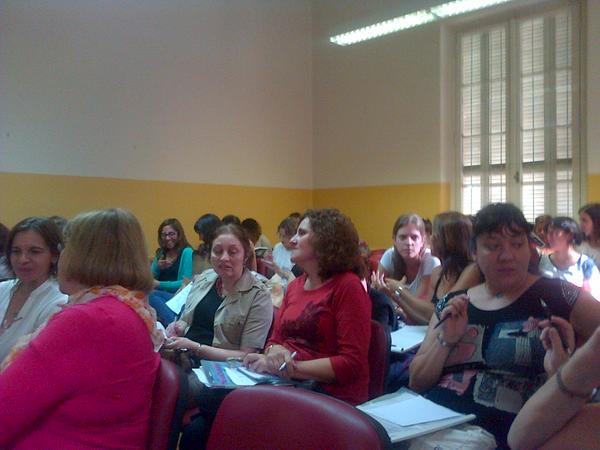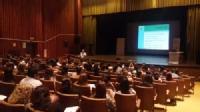Talks in Argentina for the British Council - April 2015
Here are the slides, and some links and resources relating to these talks. If you attended one of them and would like to follow up with any comments or questions, please feel free to write to me: R.C.Smith@warwick.ac.uk - I'd be happy to hear from you! You can also follow me on Twitter if you like - @RichardSmithELT -- where I will continue to post news of publications and presentations.

1) 'After Methods, What Then?' (Normal 1, Buenos Aires, 15 April)
Abstract: I begin with a critical look at the history of ‘methods’ to examine whether and, if so, why a 'post-method condition' has arisen. Concrete suggestions for moving ‘beyond’ methods have been rare, and so I explain and illustrate some possible approaches to the development of contextually appropriate methodology – via sharing of locally defined successes, via engagement in realistic teacher-research, and via collaboration within teacher networks and associations. Finally, I return to history and suggest that another way forward may lie, paradoxically, in rediscovering useful traditions.
- Slides from the talk
- We talked about excessive past faith in 'methods' like Audiolingual Method and Communicative Language Teaching. For a new view of the history of methods, see this article
 , written with A.P.R. Howatt
, written with A.P.R. Howatt - A short history of ELT (talk)
- Here are the names of the theorists I mentioned as influential in the 'post-methods movement': B. Kumaravadivelu; N.S. Prabhu; Alastair Pennycook; Adrian Holliday; Robert Phillipson; Suresh Canagarajah.
- An article referring to the concept of 'teacher-learner autonomy'
- Teacher-research project in Chile

- Chapter on teacher-research project in Chile, written with Tom Connelly and Paula Rebolledo: Chapter 5 in this book

- Resources for teacher-research

- A recent interview about some of the themes I addressed


2) 'Teaching in Difficult Circumstances: Successes, Problems, and Possible Solutions' (Escuela Normal No 3, La Plata, 15 April; APISE conference, Santiago del Estero, 17 April)
Abstract: This talk relates to teaching in difficult or ‘unfavourable’ circumstances, including lack of resources (textbooks, technology etc.), teacher fatigue, anxiety and burnout, social problems which can hinder students’ learning (poverty, housing conditions, unemployment etc.), and (in some cases) large classes and extreme heat or cold. We will begin with participants sharing their own experiences of success as well as puzzles and problems. We then discuss possible directions forward, partly on the basis of participants’ own ideas, partly on the basis of ideas gathered so far within the TELC (bit.ly/telcnet-home) network, and partly according to principles of learner / teacher autonomy and practitioner research.
- Slides from the talk
- Resources and networking for teachers of English in difficult circumstances

- Recent article on 'teacher agency' in difficult circumstances

- A talk about why learner autonomy might be particularly appropriate in difficult circumstances
 , in developing country contexts
, in developing country contexts - Talk by Harry Kuchah Kuchah (Cameroon) at the Manchester IATEFL conference on 14 April (on 'Teaching in Difficult Circumstances'): Video
3) 'Learner and Teacher Development through Everyday Practices' (Lenguas Vivas Pompeya, Buenos Aires, 14 April; APISE conference, Santiago del Estero, 17 April)
Abstract: In this talk I explain the concept of learner autonomy (ability to take control of one's own learning) and indicate how students' autonomy can be engaged and developed both outside and within classrooms, including in 'difficult circumstances'. I also indicate how teachers can assert their own autonomy on a day-to-day basis, taking back control of their own development by consulting with students, engaging them in research, and both exploring and reflecting on what goes on.
- Slides from the Santiago del Estero talk
- ELTJ debate at the Manchester IATEFL conference (on 'Language testing does more harm than good') on 12 April: Video, and summary
- A brief article about learner autonomy

- Learner autonomy in large classes in Pakistan

- Learner autonomy in a large class in Cameroon

- Talk on 'Student feedback': Video

